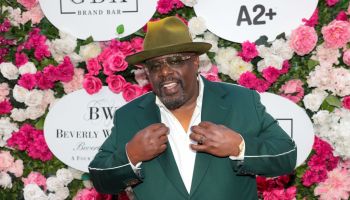<p> Glioblastoma, the most common and aggressive type of brain cancer claimed the life of Sen. Edward Kennedy and 17,000 others every year. Conventional treatments have never offered much help to patients with brain cancer.</p><p>We need alternative treatments, using the immune systems. Just like the vaccines we give for measles, mumps and the flu, the idea is to prevent cancer from coming back. Dr. Andrew Parsa, a University of California at San Fransisco (UCSF) neurological surgeon who is leading the study of the vaccine, called Oncophage, with $150,000 in funding from the National Brain Tumor Society and other patient groups and another $150,000 from the federal government. Dr. Parsa is testing that theory with a ground-breaking clinical trial at UCSF Medical Center. Working with a biotech company, his team used a piece of Wheatley’s tumor, to create a vaccine engineered to target specific cancer. A woman Joyce Wheatley became the first in the country to try a new vaccine to stop a brain tumor from reoccurring. The idea is to combine the tumor vaccine early, while the cancer is being weakened by chemotherapy and radiation. The hope is patients will then be able to manage the disease using their own immune system.</p><p>Phase 1/2 study evaluating Oncophage as a treatment for recurrent glioma, being conducted at the UCSF, showed that Oncophage vaccination increased overall median survival to approximately 10.5 months with four patients surviving beyond 12 months and one patient surviving almost 2.5 years. This is compared to a historical median survival of only 6.5 months post surgery. All patients enrolled into the trial had at least one recurrence of brain cancer. A Phase 2 glioma study is expected to complete enrollment by late 2009 and data will be submitted for publication and presentation in early 2010.</p><p>In April 2008, Oncophage® (vitespen; formerly HSPPC-96) was approved in Russia for the adjuvant treatment of kidney cancer patients at intermediate-risk for disease recurrence. In October 2008, Antigenics (Antigenics is a biotechnology company working to develop treatments for cancers and infectious diseases) submitted a marketing authorization application to the European Medicines Agency (EMEA) requesting conditional approval for Oncophage in earlier-stage, localized renal cell carcinoma. The company expects a decision from the EMEA around the end of 2009. Outside Russia, Oncophage is an investigational patient-specific vaccine designed to treat cancer with the intent of minimizing side effects. Currently being evaluated in clinical trials, treatment with Oncophage is designed to target only cancerous cells – not healthy normal cells. As a result, Oncophage is designed to limit the toxicities associated with traditional broad-acting cancer treatments.</p><p>Oncophage received fast track and orphan drug designations from the US Food and Drug Administration (FDA) for both kidney cancer and metastatic melanoma as well as orphan drug designation from the EMEA for kidney cancer. In 2009, Oncophage also received orphan drug designations from the FDA and EMEA for glioma. In April 2009, the World Vaccine Congress named Oncophage as the best therapeutic vaccine.</p>
















